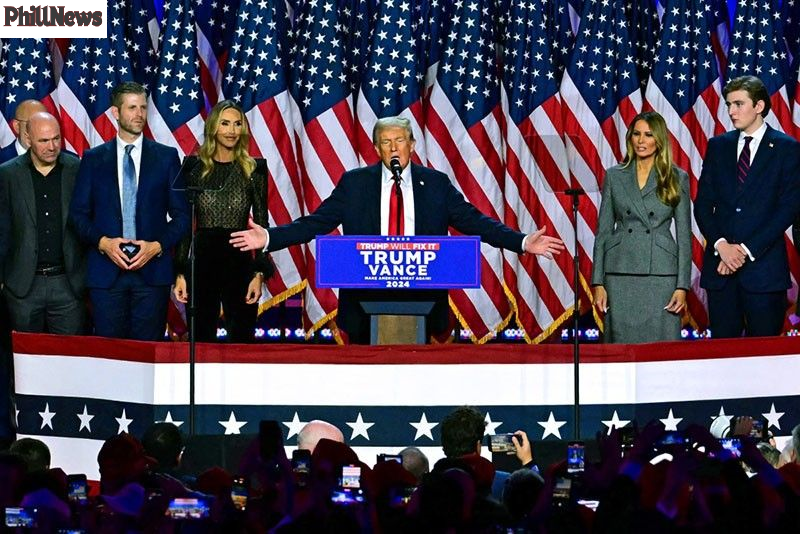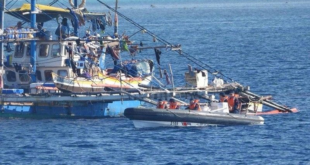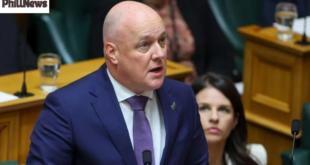
Philippines, Manila — When Donald Trump takes office again, his tough posture against China remains unaltered, his distrust of multilateral alliances is well-established, and his “America First” philosophy is poised to fundamentally alter US foreign policy.
The stakes are apparent, according to observers: Trump will probably be forced to move past his prior hesitation and adopt a more assertive stance toward the Philippine alliance as a result of Beijing’s growing regional expansion.
However, President Ferdinand Marcos Jr.’s much-lauded plan to pursue deeper defense relations with the US under the Biden administration is also in danger of failing due to Trump’s unpredictable leadership style and rejection of conventional alliances.
“Marcos’ Philippines, which made significant investments in the Philippine-US alliance during the Biden administration, stands to lose the most in a Trump presidency,” political science professor Cleve Arguelles cautioned, pointing out that Trump is “unpredictable” and “notoriously transactional.”
Arguelles told Philstar.com that Trump “often acts unilaterally when dealing with international issues like China,” as evidenced by his actions during his first term as president, which included enforcing tariffs and sanctions as well as circumventing multilateral agreements.
“We will be left on our own to deal with a provoked aggressive and powerful neighbor if Washington under Trump decides to withdraw support to Manila in the face of increased pressure from Beijing in the South China Sea/West Philippine Sea,” Arguelles stated.
Beginning in 2017, when Trump was first elected, the United States increased its military presence in the South China Sea amid escalating competition with China.
However, it was also during his tenure that then-Defense Secretary Delfin Lorenzana characterized the United States as “ambivalent” about the long-standing defense agreement that requires it to defend the Philippines in the event of an attack by a third party.
The US was unsure at the time if it would defend the Philippines against an invasion, particularly in the South China Sea. In 2018, Lorenzana ordered its pact with the United States on mutual defense to be reviewed.
A few months later, US authorities promised the Philippines that if there was an armed attack, the US would defend it.
But Trump’s disinterest in the geopolitical issues of its longest-standing treaty ally in the area would resurface. An agreement that permitted US forces to train in the nation was threatened to be terminated by former President Rodrigo Duterte in 2020. Trump claimed he wouldn’t “mind” if the agreement was ruined.
According to geopolitical analyst Julio Amador III, Manila’s next task will be to situate itself within Trump’s commercial perspective.
“America First will most likely be formulated in a way that benefits partners or allies that further this goal. Under Trump, the Philippines must figure out how to cooperate with the US, Amador stated.
“I don’t believe that under Trump 2.0, things would completely change. To determine where the US and the Philippines will converge, we need to clarify our foreign policy,” he continued.
According to Arguelles, the general consensus is that although the Philippines’ colonial ties with the US might offer some defense against significant policy changes, the “potential uncertainty, if not unreliability, of US as a Philippine partner will probably deepen existing concerns” regarding the alliance’s long-term worth.
According to Rommel Ong, a professor at the Ateneo School of Government, the stability of military cooperation could be a vital safeguard against a complete breakdown of the Philippines’ South China Sea strategy.
Ong, a retired vice admiral of the Philippine Navy, told Phillnews.com, “I think that the current military-to-military cooperation between [the Armed Forces of the Philippines] and [United States Indo-Pacific Command] will continue, such as in the form of military exercises and official visits.”
Ong did point out that the Philippines’ efforts to protect itself from China’s economic coercion may suffer. “The interventions to help the country enhance its resiliency against Chinese economic coercion might merit a second look from Trump,” he stated.
Finally, Ong stated that the shift in leadership indicates the need for the Philippines to broaden its security alliances. This entails agreements with similar-minded nations like Australia, Canada, India, South Korea, and other European states, as well as the pursuit of a trilateral agreement with the US and Japan.
“This is specifically to prevent disturbances like leadership changes and changes in the character of domestic politics, especially in the United States,” Ong continued.
 Phill News Entertainment – Phill News
Phill News Entertainment – Phill News



